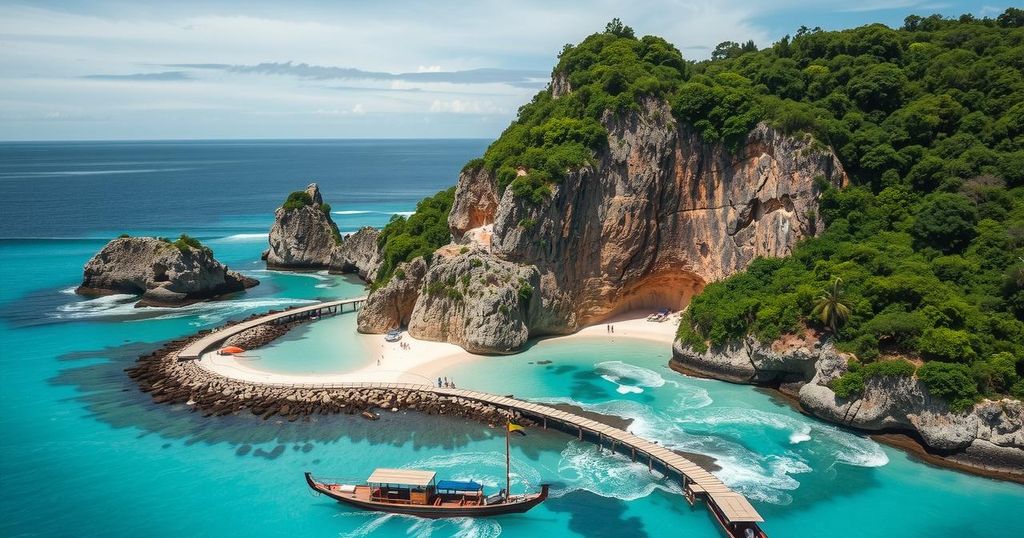Guyana to Seek International Court Intervention Amid Territorial Dispute with Venezuela

Guyana is seeking assistance from the International Court of Justice to counter Venezuela’s plans to elect a governor in the disputed Essequibo region, which Venezuela claims as its own. The Guyanese government argues that this move violates a prior agreement aimed at preventing conflicts. The dispute is further complicated by recent discoveries of oil in the area, elevating tensions between the two nations.
Guyana announced its intention to solicit assistance from the International Court of Justice (ICJ) in response to Venezuela’s plans to elect a governor for the disputed Essequibo region, an area rich in natural resources. The Ministry of Foreign Affairs of Guyana asserted that this initiative by Venezuela contravenes a December 2022 agreement aimed at avoiding conflict and exacerbation of tensions over the mineral- and oil-rich region that occupies two-thirds of Guyana’s landmass. The ministry emphasized that the populace of Essequibo are Guyanese citizens residing within Guyana’s sovereign territory, thereby labeling any electoral activity by Venezuela there as a violation of international law as outlined by the U.N. Charter.
The statement from the ministry indicated that Guyana would request provisional measures from the ICJ to curtail Venezuela’s electoral plans, arguing such actions jeopardize ongoing legal proceedings and undermine the authority of the court as a key judicial body in the United Nations. Venezuela has historically claimed the Essequibo region based on its colonial past, disputing the 1899 border arbitration while also dismissing Guyana’s claims placed before international judges in 2018. Despite the tensions, Venezuela’s interests in Essequibo have surged dramatically following substantial offshore oil discoveries in 2015, currently sustaining an output of approximately 650,000 barrels per day.
This latest escalation occurs shortly after Guyana condemned Venezuelan military actions that purportedly violated its territorial integrity by completing a bridge on Guyanese territory. Notably, relations had improved over the previous year, particularly following Guyana’s collaboration with U.S. military operations, demonstrating a strategic pivot in the region.
The conflict over the Essequibo region involves historical claims that date back to colonial times. Venezuela, asserting that the area was included in its boundaries under Spanish colonial rule, has persistently disputed the validity of the 1899 arbitration that established the current borders. The dispute resurfaced in international forums when Guyana sought legal adjudication from the ICJ, targeting the recognition of the established borders amidst increasing geopolitical tensions fueled by the discovery of oil reserves along its coast. This conflict is reflective of broader regional dynamics and interests as both nations navigate sovereignty and resource management considerations in a resource-rich area.
In conclusion, Guyana’s pursuit of legal recourse from the ICJ highlights the escalating tensions between it and Venezuela over the contested Essequibo region. As Venezuela attempts to solidify its claims through election plans that Guyana deems illegal, the international legal framework stands as a potential arbitrator in this dispute. The ongoing geopolitical implications also underscore the importance of international law and cooperation in resolving territorial conflicts, especially in regions abundant in resources.
Original Source: apnews.com







